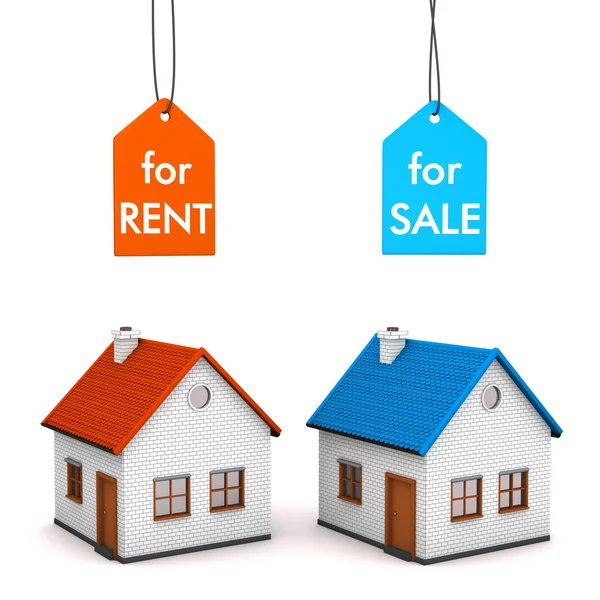Let me walk you through one of the most common (and confusing) questions UK homeowners face: Should you sell or rent out your property?
Whether you’re moving in with a partner, relocating for work, or just trying to plan your next step, this decision can have a long-term impact on your finances.
In this guide, we’ll run the real maths behind both options using practical UK examples. By the end, you’ll know:
- How to calculate rental yield
- What taxes and costs you must factor in
- When selling is smarter than renting
- And when it makes sense to become a landlord
Let’s dive into the numbers.
1. Understanding the Core Question: Sell or Rent Out Your Property?
Before anything else, you need clarity. Ask yourself:
- Do I need a lump sum now?
- Am I ready to manage tenants?
- Can the rental income cover the mortgage and maintenance?
- Is my property in a good rental area?
Example:
Let’s say you own a 2-bed flat in Manchester worth £200,000. If you sell, you could walk away with £50,000 in equity after settling your mortgage. If you rent it, you might earn £950/month in rent.
Which is better? Let’s run the numbers.
2. The Real Costs of Selling a Property in the UK
Selling might feel like the cleaner option, but there are costs involved:
- Estate agent fees: Usually 1% to 2.5% of the sale price + VAT
- Conveyancing/legal fees: £500 to £1500
- EPC (Energy Performance Certificate): ~£70
- Capital Gains Tax (if it’s not your primary residence)
Example:
If you sell your £200,000 flat:
- Estate agent fee (1.5%) = £3,000
- Legal fees = £800
- EPC = £70
- Total selling cost: ~£3,870
Selling nets you a lump sum, but subtract those costs from your proceeds.
3. The Ongoing Costs of Renting Out Your Property
Renting seems like “passive income,” but it has strings attached:
- Letting agent fees (usually 8-15%)
- Landlord insurance (£200-£500/year)
- Maintenance & repairs (~£1,000/year on average)
- Mortgage payments (if you still owe money)
- Void periods when no tenant is in place
- Gas Safety Certificate and EICR (mandatory legal checks)
Example:
That same Manchester flat rents for £950/month = £11,400/year
- Letting agent fee (10%) = £1,140
- Insurance = £300
- Maintenance = £1,000
- Mortgage interest = say £4,500/year
Net income: £11,400 – (£1,140 + £300 + £1,000 + £4,500) = £4,460/year
Not bad, but is it worth the hassle?
4. Rental Yield vs. Capital Gains: Which Wins?
Now, let me tell you about two key metrics:
a) Rental Yield
Rental Yield = (Annual Rent / Property Value) x 100
Using our Manchester flat:
- (£11,400 / £200,000) x 100 = 5.7% gross rental yield
After deducting expenses, this yields a net return of approximately 2.5%-3%.
b) Capital Growth
If the market grows at 4% annually, your £ 200,000 flat could be worth £ 240,000 in 5 years. That’s a £40K gain, plus rental income over time.
But markets can go down, too.

5. When Selling Might Be the Smarter Move
Here are some scenarios where selling makes more sense:
- You need cash for a deposit on a new home
- You’re moving far away and can’t manage tenants
- Your property isn’t in a strong rental location
- You’re looking to simplify your finances
Example:
If you sell for £200K and invest your £50K equity in a high-interest savings account at 5%, you could earn £2,500/year with no hassle.
6. When Renting Out Is the Better Long-Term Strategy
Renting could be a better option if:
- You have low mortgage costs and high rental demand
- You want long-term income or a retirement stream
- You’re in a rising property market
Example:
If rent prices increase 3% annually, your £950/month could become £1,100/month in 5 years. That’s £13,200 annually—before expenses.
Also, you keep the property’s capital growth.
7. Other Factors to Weigh Before You Decide
- Tax: You’ll pay income tax on rental profits. Capital Gains Tax applies when selling.
- Regulations: Being a landlord means following UK rental laws (e.g., right-to-rent checks, deposit protection).
- Energy Efficiency: From 2025, all new tenancies require an EPC rating of C or above. Can your property meet that?
8. Crunching the Real Numbers: Rent or Sell Calculator
Use the BBC’s Rent vs. Sell calculator to plug in your real figures:
You can also try:
- https://www.propertydata.co.uk/ (for local rental yields)
- https://www.gov.uk/capital-gains-tax (for CGT rules)
9. Final Thoughts: Know Your Numbers, Know Your Strategy
There’s no one-size-fits-all answer. The smart move depends on your financial goals, life plans, and how much hassle you’re willing to deal with.
Let me leave you with this:
- If you need money now, sell smart.
- If you want cash flow and are ready for the responsibility, rent.
Whichever path you choose, make sure you know the maths, the rules, and the real-world impact.
You’re not just choosing between two doors. You’re choosing how you want your money to work for you.





Join The Discussion